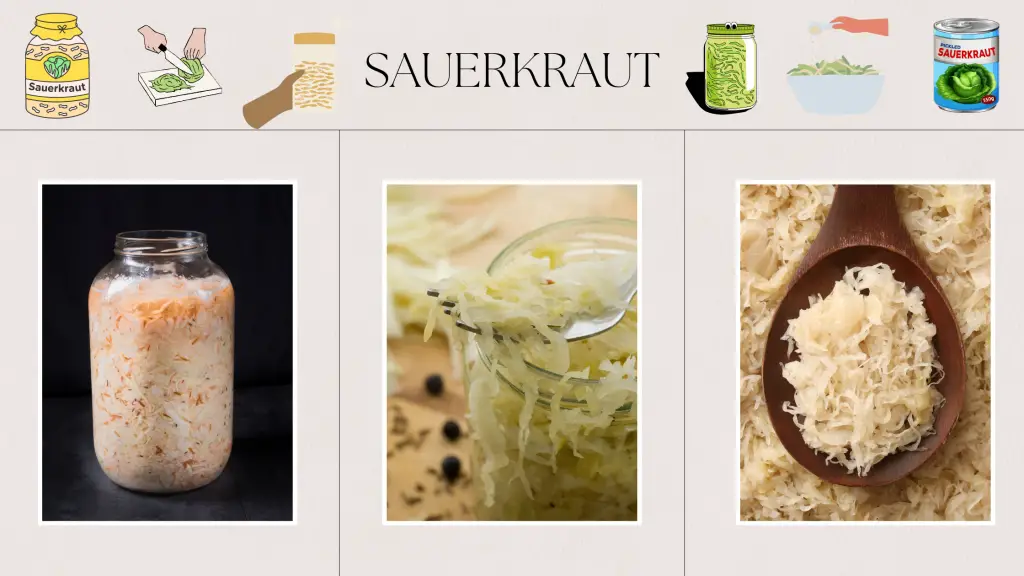
Kimchi is a traditional Korean dish that has been a staple of Korean cuisine for thousands of years. The origins of kimchi can be traced back to ancient Korea, where it was developed as a way to preserve vegetables during the winter months when fresh produce was scarce.
Early forms of kimchi were made by fermenting vegetables like radishes and cucumbers with salt and spices. Over time, the recipe for kimchi evolved to include a variety of vegetables, including cabbage, and the use of chili peppers became more widespread.
Kimchi has played an important role in Korean culture and cuisine throughout history. It has been a staple food in Korean households for generations and is often served at special occasions and celebrations.
During the Korean War in the 1950s, kimchi became an important symbol of Korean identity and cultural heritage. The government even established a Kimchi Research Institute to promote the production and consumption of kimchi.
Today, kimchi is enjoyed not only in Korea but also around the world. Its popularity has led to the development of many different varieties, with different ingredients and levels of spiciness. Kimchi is also known for its many health benefits, including being a good source of vitamins, fiber, and beneficial bacteria that promote gut health.
Kimchi is a fermented vegetable dish that is widely consumed in Korean cuisine. It is made by combining cabbage, radishes, scallions, and other vegetables with a spicy and savory seasoning paste, then allowing the mixture to ferment over time. Kimchi is not only delicious but also has several potential health benefits:
- Probiotic properties: Kimchi is a rich source of beneficial bacteria known as probiotics. These bacteria are known to support digestive health, boost immunity, and may even have a positive impact on mental health.
- Antioxidants: Kimchi is rich in antioxidants, which help protect the body from damage caused by harmful molecules known as free radicals. Antioxidants are associated with several health benefits, including reducing the risk of chronic diseases such as cancer, diabetes, and heart disease.
- Low calorie and high fiber: Kimchi is low in calories but high in fiber, which can help promote feelings of fullness and support healthy digestion.
- May reduce inflammation: Some studies have suggested that kimchi may help reduce inflammation in the body, which is linked to several chronic diseases. This is due in part to the presence of compounds such as capsaicin, which is found in chili peppers and has been shown to have anti-inflammatory effects.
- May boost brain function: Some studies have suggested that the probiotics found in kimchi may have a positive impact on brain function, including improving memory and reducing anxiety and depression symptoms.
It is important to note that more research is needed to fully understand the health benefits of kimchi, and that some store-bought varieties may be high in sodium and preservatives. Homemade kimchi, or varieties that are low in sodium and preservatives, may offer the most health benefits.

Sauerkraut is a type of fermented cabbage that has been consumed for centuries in various forms across Europe. The origins of sauerkraut can be traced back to ancient China, where fermented cabbage was used as a staple food and medicinal remedy.
The practice of fermenting cabbage eventually spread to Europe, where it became a popular food among Germanic and Eastern European cultures. Sauerkraut was particularly popular in Germany, where it became a staple food during the winter months when fresh vegetables were scarce.
In the 18th century, the British Royal Navy began using sauerkraut as a source of Vitamin C to prevent scurvy among sailors on long voyages. This practice helped popularise sauerkraut outside of Europe and spread its consumption to other parts of the world.
During World War I and II, sauerkraut became a symbol of German culture, leading to a temporary decline in its popularity in the United States and other countries. However, in recent years, sauerkraut has experienced a resurgence in popularity due to its numerous health benefits and the growing interest in fermented foods.
Today, sauerkraut is enjoyed around the world and is commonly used as a condiment, side dish, or ingredient in various dishes. It is a rich source of vitamins C and K, fibre, and beneficial bacteria that promote gut health.
Sauerkraut is a fermented food made from cabbage that has a number of potential health benefits. Here are some of the main health benefits associated with consuming sauerkraut:
- Rich in probiotics: Sauerkraut is a great source of beneficial bacteria, also known as probiotics. These bacteria can help promote gut health, improve digestion, and strengthen the immune system.
- High in nutrients: Sauerkraut is rich in vitamins C and K, as well as other nutrients like fiber and antioxidants. Vitamin C is an important antioxidant that can help protect the body against damage from free radicals, while vitamin K is important for bone health and blood clotting.
- May help reduce inflammation: Some research suggests that the probiotics in sauerkraut may help reduce inflammation in the body. Inflammation is linked to a number of chronic diseases, including heart disease, diabetes, and cancer.
- May improve digestion: The probiotics in sauerkraut can help improve digestion by promoting the growth of beneficial bacteria in the gut. This can lead to improved digestion and reduced symptoms of digestive issues like bloating, constipation, and diarrhea.
- May support weight loss: Sauerkraut is low in calories and high in fiber, which can help promote feelings of fullness and reduce overall calorie intake. This can be helpful for those trying to lose weight or maintain a healthy weight.
- May support heart health: The antioxidants in sauerkraut may help protect against heart disease by reducing inflammation and improving blood flow.
It is important to note that while sauerkraut can be a healthy addition to your diet, some store-bought varieties may be high in sodium or preservatives. It is best to choose a low-sodium, naturally fermented variety or make your own sauerkraut at home.

